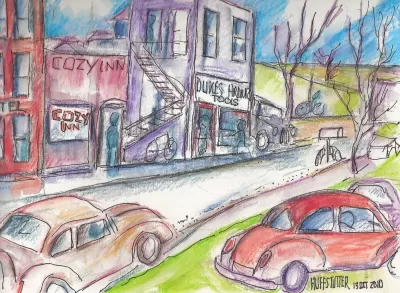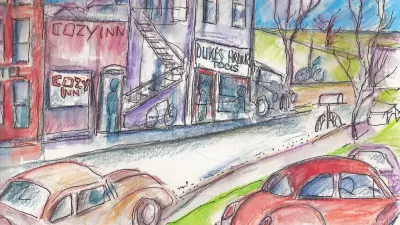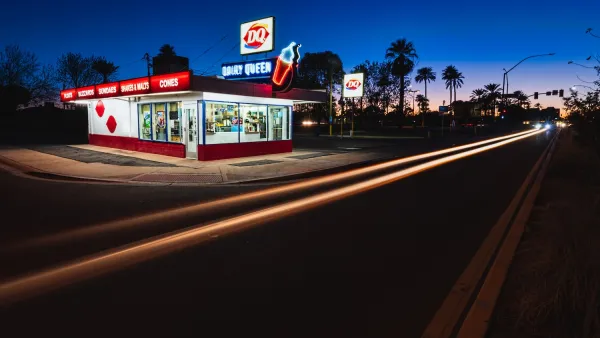A burgeoning revitalization model uses the arts as an opportunity to bring in outside money while hiring local.

In the search for new models to drive rural economic development, Minnesota nonprofit Springboard for the Arts is seeding creative economies in small cities. It's a model that the organization hopes to take national with a workbook currently in development, Star Tribune reports.
Based in St. Paul, Springboard uses federal grant money to promote the arts and train local artists. Star Tribune covers the organization's outpost in Fergus Falls, a city of 13,400 reeling from the closure of the state's largest mental hospital, a major local employer and resource. Now, the facility's former campus has become an arts hub with galleries, youth classes, and creative development programs. "Newly renovated apartments" also host 20-30 artists-in-residence a year.
Even when the arts don't directly create jobs, the organization argues, they contribute to quality of life and attract new residents to fill jobs—including young people who had previously moved away to larger cities.
A 2017 report shows that Fergus Falls has an outsized arts scene. While the city's population ranked 13th among participating Minnesota cities, the size of its arts economy ranked ninth — ahead of St. Louis Park, Northfield and Red Wing, according to a statewide report from the Minnesota Citizens for the Arts. That report, which counted spending by arts organizations and audiences, tallied the economic impact of Fergus Falls’ arts scene at $2.96 million, with state and local money contributing $271,000 toward that total.
FULL STORY: Fergus Falls strives to become national model with its thriving rural arts scene

Planetizen Federal Action Tracker
A weekly monitor of how Trump’s orders and actions are impacting planners and planning in America.

Maui's Vacation Rental Debate Turns Ugly
Verbal attacks, misinformation campaigns and fistfights plague a high-stakes debate to convert thousands of vacation rentals into long-term housing.

Restaurant Patios Were a Pandemic Win — Why Were They so Hard to Keep?
Social distancing requirements and changes in travel patterns prompted cities to pilot new uses for street and sidewalk space. Then it got complicated.

In California Battle of Housing vs. Environment, Housing Just Won
A new state law significantly limits the power of CEQA, an environmental review law that served as a powerful tool for blocking new development.

Boulder Eliminates Parking Minimums Citywide
Officials estimate the cost of building a single underground parking space at up to $100,000.

Orange County, Florida Adopts Largest US “Sprawl Repair” Code
The ‘Orange Code’ seeks to rectify decades of sprawl-inducing, car-oriented development.
Urban Design for Planners 1: Software Tools
This six-course series explores essential urban design concepts using open source software and equips planners with the tools they need to participate fully in the urban design process.
Planning for Universal Design
Learn the tools for implementing Universal Design in planning regulations.
Heyer Gruel & Associates PA
JM Goldson LLC
Custer County Colorado
City of Camden Redevelopment Agency
City of Astoria
Transportation Research & Education Center (TREC) at Portland State University
Jefferson Parish Government
Camden Redevelopment Agency
City of Claremont





























